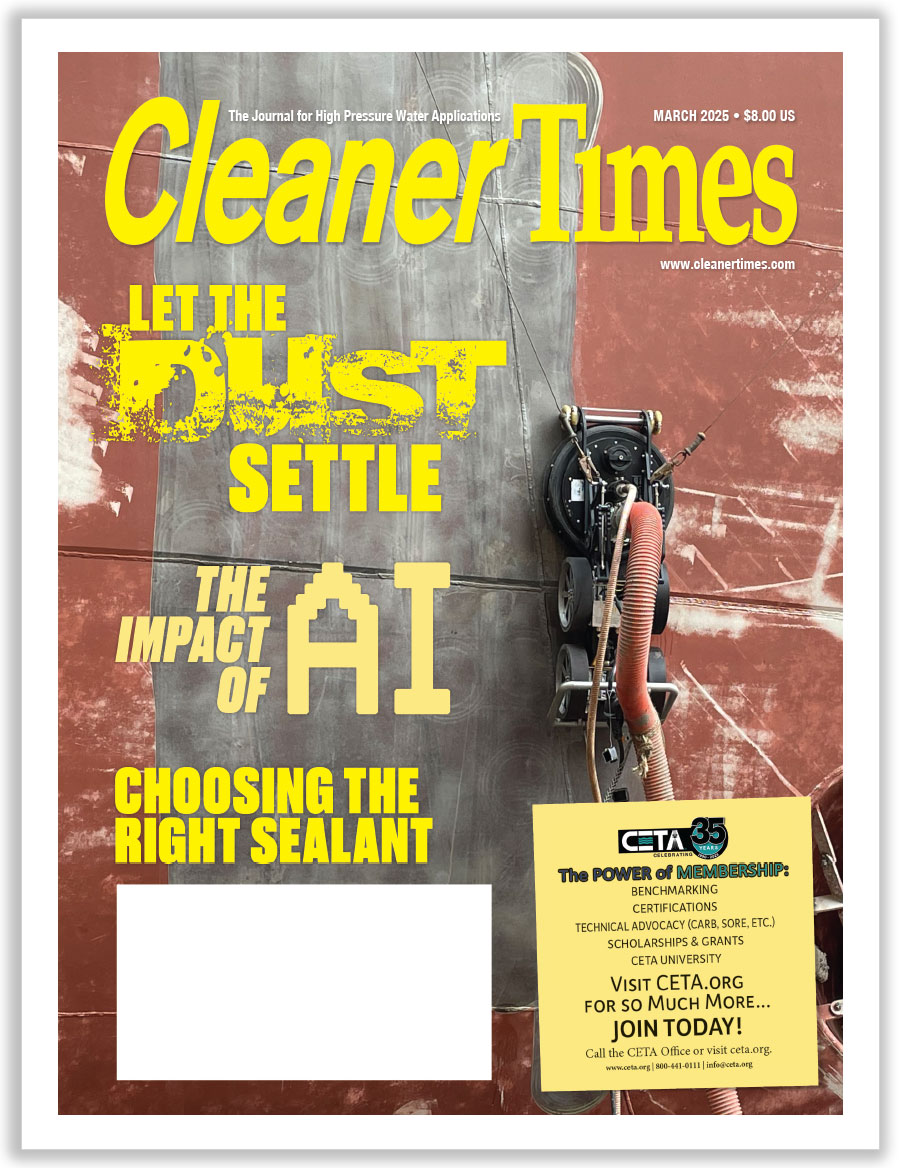
Strength, Confidence, and Hard Work—Women in the Industry
By Regina Galvin / Published May 2022

As a devout Christian, Cleaner Times’ founder, Charlene Yarbrough, would be familiar with the following scriptural reference from Proverbs 31:16–17, “She wraps herself in strength, carries herself with confidence, and works hard, strengthening her arms for the task at hand.” As a witness to the last three decades of growth in the power washing industry, she might also recognize its applicability as a testimony describing the evolving role of women in the industry’s workforce.
From pivotal icons like Yarbrough, who started the magazine when, as she puts it, “Most folks didn’t know what power washing even was,” to today’s confident new brand of owners and owner/operators, and in recognition of all the hard-working women in support roles, this article offers a brief glimpse of the female side of the shop.
You’ve Come A Long Way Baby
“My sister Nelle and I started the magazine in 1990, before power washing became known to the general public,” Yarbrough said. “I was on an airplane flight back when we first started, and a man asked me what I did. When I told him, he said, ‘Well, what in the world is power washing?”’
According to a MarketsandMarkets report, the global pressure washer market size is expected to grow from USD 2.5 billion in 2021 to USD 3.0 billion by 2026. The projected growth is attributed to increased worldwide construction and a growing demand for pressure washers for commercial applications.
In the United States, power washing is now a $1.3 billion business, employing nearly 34,000 people according to IBISWorld reports.
While the industry’s visibility has seen exponential change since 1990, Yarbrough acknowledged one characteristic consistency: “It’s still a male-dominated industry.”
The online career resource platform Zippia cites that among those whose title is power washer, 9.3 percent are women compared to 87.5 percent who are men. However, many women are employed in the industry’s administrative and management roles.
“There has been an expansion in the of role of women from when I started in the industry 38 years ago,” said Judy Bowers, owner of R.J. Bowers Distributors in Rockford, IL.
“I’ve seen more woman engineers in manufacturing, for example. There are more women who own companies, and more women who co-own,” Bowers said. “Yes, it’s male dominated, but women in this industry are tough women.”
Her advice to those considering careers in power washing? “If you’re a woman who doesn’t like to deal with men, then don’t bother [with this line of work],” Bowers said.
There are more women in the power washing industry than people think, according to Marie Reinsel, the former executive director of Power Washers of North America who now serves as the organization’s current controller. Reinsel and her husband are partners in the Bellevue, OH-based A2Z Commercial Services. “The majority of women are behind the scenes,” Reinsel said. “We run the business.”
Research may support a reason for this gender trend. According to a 2021 “Women in the Workplace” report by the nonprofit Lean In, compared to men at the same levels, women leaders are stronger people managers and more active champions of diversity.
According to power washing industry observers, soft skills, defined as personal attributes that enable someone to interact effectively with others, are often better executed by women.
Reinsel agrees. “I know my husband would much rather be out doing the power washing than what I do!” Reinsel said her responsibilities include but are not limited to financial, administrative, and employee management duties.
Reinsel said she’s noticing more women moving from traditional bookkeeping and administrative roles to joining their husbands/business partners out in the field power washing or owning and exclusively operating their own business.
Out in the field, is where you’ll find Joy Miller, owner/operator of Extreme Pure Clean in Bayfield, Ontario, and Trish Greene, owner/operator of Green Pure Clean, also located in Ontario, Canada. Both businesses started within the last decade and through hard work and diligence have proven they’re run by professionals who are in it for the long haul.
“When I started, people [in the industry] were so willing to help, and they still are,” Greene said. “I showed up willing to learn, to attend training, and to ask questions, and I got the help and answers I needed.” Building their respective businesses from the ground up, Greene and Miller faced challenges all new owners experience and some that females mostly do.
Gender Bias In The Workplace
Multiple women active in either the Cleaning Equipment Trade Association (CETA) or PWNA were interviewed for this article. While all the women said they felt they were on equal footing with their male peers as far as opportunities for business growth and professional development, they also acknowledged there was still a prevalent gender bias in a traditionally male-dominated field.
“I’m very proud of women in our industry. And this woman knows what she’s doing!” Joy Miller said. “There have definitely been times where I show up and the male customer underestimates me immediately due to me being a woman. With my personality and expertise, by the time I’m finished with our conversation, they’re confident I’m the right person for the job.”
Even women who have more years in the industry than many of their customers experience the bias.
“I answered the phone one time, and the caller asked if he could talk to one of the guys. So, I sent him to one of the employees,” Bowers said. Bowers has almost four decades experience in the industry.
“After talking with him, he asked if he could talk to the boss. My employee gave the phone back to me,” Bowers said. “The customer was a little stunned and said, ‘So, you’re the boss, huh?’ Sometimes it takes more than a little convincing that you know what you’re talking about.”
What is clear is that the power washing industry has plenty of women—whether owners, owner/operators, or women who fill important roles behind the scenes—who are trailblazers, have vital industry knowledge, and are needed to move the industry forward.
Regina Galvin is a freelance writer and communications consultant from Northern Virginia.






